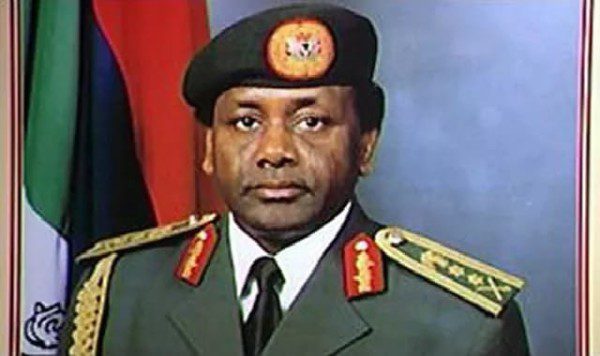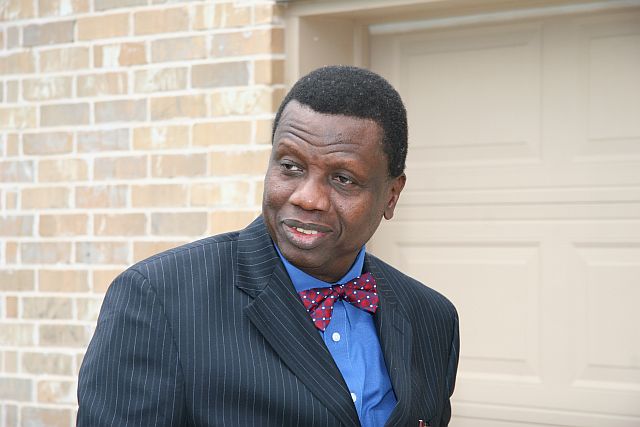Democracy & Governance
Abacha Loot: Situating the U.S. Anger Correctly -By Yemi Adebowale

Last Sunday, the media was awash with reports that the federal government had denied entering into any agreement to pay the Kebbi State Governor, Abubakar Bagudu, or any other third party, $100 million from funds recovered from the family of the late Nigerian head of state, General Sani Abacha. According to the Attorney General of the Federation and Minister of Justice, Abubakar Malami, the Nigeria government remains committed to working with the United States and other countries to recover the country’s assets stashed abroad.
Malami said: “It is pertinent to recall at this juncture that prior to the 2020 agreement with the United States and Island of Jersey; the federal government signed an agreement for the return of over $300 million in 2017, which was effectively deployed for the purpose for which it was agreed to be applied without any issue of reputation. The FGN is also negotiating the recovery of assets from several countries and the agreements for the recoveries and the procedure for recoveries are always presented to Federal Executive Council for approval and duly made public once the processes have been concluded. No third-party interest was captured in the Council memo that was approved by the Council.”
The red flag raised by the United States over the alleged planned payment of $100 million to a 3rd party, has nothing to do with the $308 million forfeited Abacha loot, for which an Asset Recovery Agreement was recently signed with the government of Jersey and the U.S. According to the treaty, the $308 million will be used to expedite work on three major infrastructures i.e. Lagos – Ibadan Expressway, Abuja – Kano Expressway and the Second Niger bridge. The red flag also has nothing to do with the $300 million returned to Nigeria in 2017, which the Buhari government said it utilised for social safety for Nigerians.
The red flag raised by the U.S. has to do with additional funds traced to Bagudu. Malami admitted that the USA and the Bagudu family had been in court since 2014 over assets already rescinded under a 2003 agreement. He said the matters are to be determined by courts in the United Kingdom and the U.S., adding: “The Bagudu family assets in contention, which constitute a distinct and separate cause of action, do not have anything to do with the assets already recovered and being recovered under the Abacha 2014 non-prosecution agreement.
It is, therefore, mischievous and pedestrian for anyone to seek to turn the law and the facts on its head on the matter of repatriation, whose terms are clearly spelt out and agreed among the parties.”
Malami did not fully address the issues being raised by the U.S. government. The red flag evidently has nothing to do with assets already recovered. Now, here is the truth that must be told. Back in 2013, the U.S. Department of Justice (DoJ) initiated a forfeiture action against a host of assets, including four investment portfolios, held in London in trust for Bagudu, and his family. This is according to U.S. district court filings.The United States is seeking forfeiture of over $177 million from Bagudu. It is raising a red flag in connection with this, by accusing the Nigerian government of planning to pay Bagudu €98.5 million (about $100 million) from this $177 million.
How and why? According to the court filings, despite the forfeiture action initiated by the U.S., following a request by the Nigerian government in 2003, “Buhari’s government says it can’t assist the U.S. because it’s bound by a settlement Bagudu reached with the administration of then-President Olusegun Obasanjo in 2003.” According to a December 23, 2019 memorandum by U.S District Judge, John D. Bates, in Washington D.C., under the terms of that accord, which was approved by a U.K. court, Bagudu returned $163 million of allegedly laundered money to the Nigerian authorities, which in exchange dropped all outstanding civil and criminal claims against him “stemming from his involvement in government corruption”. That meant “Nigeria renounced any interest whatsoever” in Bagudu’s trust assets, including those the U.S. is attempting to recover for our country, the memo stated.
Bagudu allegedly successfully sued Nigeria for violating the 2003 settlement and the U.S. is now claiming that the Buhari administration reached a new agreement with him in 2018, according to the court filings in Washington. That would allegedly result in the transfer of ownership of the investment portfolios, worth €141 million ($155 million) to the Nigerian state, which would then pay €98.5 million to Bagudu and his affiliates, according to Bates’ December 23 opinion. The funds are currently restrained by the U.K. at the request of the U.S.
According to the U.S., the Nigerian government claims the updated 2018 agreement with the Kebbi governor, which requires court approval in the U.K., will “curtail and mitigate its looming exposure” from the judgment in Bagudu’s favour. The American DoJ alleged that the Buhari’s administration submitted the 2018 deal to the U.K. court last September to support its application to unfreeze the assets so they can be sent to Nigeria. The court is yet to make a decision.
The U.S. is further claiming that the Buhari administration is saying a 17-year-old agreement entitles Bagudu to the funds and prevents Nigeria from assisting the U.S., according to filings by the US DoJ, at the District Court for the District of Columbia in Washington, United States. The DoJ alleged that Bagudu, 58, was part of a network controlled by Abacha that “embezzled, misappropriated and extorted billions from the government of Nigeria.”
Matthew Page, an associate fellow at London-based Chatham House and former Nigeria expert for U.S. intelligence agencies said: “This case illustrates how complex and contentious repatriating stolen assets to Nigeria can be. Instead of welcoming U.S. efforts, Nigeria’s lawyers appear to be supporting the interests of one of the country’s most powerful families.”
A visibly angry U.S. government remarked
in a February 3, 2020 statement issued by its DoJ: “In addition to the
more than $308 million forfeited in Jersey, the Department of Justice is
seeking to enforce its forfeiture judgment against approximately $30
million located in the UK and over $144 million in France. The United
States is also continuing to seek forfeiture of over $177 million in
additional laundered funds held in trusts in the name of Abacha
associate, Bagudu, the current governor of Kebbi State, and his
relatives as beneficiaries. The United States has asked the government
of Nigeria to withdraw litigation it has instituted in the UK that
hinders the U.S.
effort to recover these additional funds for the people of Nigeria. The
United States entered into the trilateral agreement to repatriate the
Jersey assets because of its longstanding commitment to recover asset
for the benefit of those harmed by grand corruption and because of the
important safeguards embodied in the agreement.
“This case was brought under the Kleptocracy Asset Recovery Initiative by a team of dedicated prosecutors in the Criminal Division’s Money Laundering and Asset Recovery Section working in partnership with the FBI. Through the Kleptocracy Asset Recovery Initiative, the Department of Justice and federal law enforcement agencies seek to safeguard the U.S. financial system from criminal money laundering and to recover the proceeds of foreign official corruption. Where appropriate and possible, the department endeavors to use recovered corruption proceeds to benefit the people harmed by acts of corruption and abuse of public trust.”
These are the questions Malami should address: Did the Nigerian government institute litigation in the UK, hindering the U.S. efforts to recover these additional funds for the people of Nigeria? Did the Nigerian government get a memo from the United States’DoJ, asking it to withdraw litigation it has instituted in the UK that hinders the U.S. effort to recover these additional funds? Was there any judgment in Bagudu’s favour in the UK? Did the Nigerian government sign an updated agreement with the Kebbi governor in 2018, which it said would curtail and mitigate its looming exposure from the judgment in Bagudu’s favour? Did the Nigerian government, at any point, tell the U.S.
government that it could no longer assist the U.S. to recover the fresh funds traced to Bagudu because it is bound by a settlement Bagudu reached with the Obasanjo administration in 2003? Did the Nigerian government submit a 2018 deal with Bagudu to a U.K. court last September to support its application to unfreeze the assets so that they can be sent to Nigeria?
These are the pertinent questions awaiting Malami’s response. I sincerely hope that he would respond appropriately this time around.



















